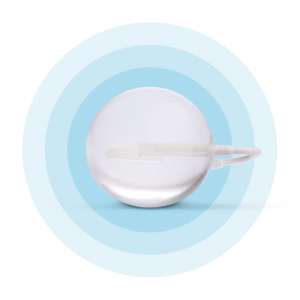Gastric Balloon and Pancreatitis
Spatz3 is the world’s only Adjustable Gastric Balloon System
One of the most common questions that arises in those curious about getting a gastric balloon relates to the gastric balloon and pancreatitis. Pancreatitis is a condition that can be acute or chronic; however, in gastric pancreatitis cases, those related to gastric procedures, the incident is usually acute. Learn about gastric pancreatitis to know what the risk factors are as well as what to look out for.

Receive your free 4 -step guide today!
In each step, you’ll learn new tips to help you choose the RIGHT weight loss solution!
What is Pancreatitis?
Pancreatitis is inflammation of the pancreas. This happens when digestive enzymes attack the pancreas. Because the pancreas sits just behind the stomach, gastric procedures such as gastric balloon, gastric bypass, gastric sleeve, etc. can impact the pancreas.
- Acute pancreatitis occurs suddenly and lasts for a short period of time with the pancreas typically returning to normal afterward.
- Chronic pancreatitis comes and goes and can lead to permanent pancreatic damage that could cause the pancreas to stop making enzymes and insulin.
Signs of pancreatitis include nausea, vomiting, fever, severe belly or back pain, fluid build-up, low blood pressure, jaundice, and rapid heartbeat. You may not have all of the signs of pancreatitis during an episode.
Does Gastric Balloon Cause Pancreatitis?
There are several causal factors related to pancreatitis. These include but are not limited to:
- Genetics
- Alcohol use
- Smoking
- Gallstones
- Stomach surgery
While it’s very unlikely, after eliminating other causal factors, it has been shown that very rarely gastric balloon can cause acute pancreatitis. This means that pancreatitis after gastric bypass and pancreatitis after gastric sleeve are also possible outcomes.
In cases involving gastric balloon and pancreatitis, gastric sleeve and pancreatitis, and gastric bypass and pancreatitis, resolution of the pancreatitis is typically handled quickly. It’s worth noticing that in surgical procedures like gastric bypass and gastric sleeve, additional complications like bowel obstruction could present early on. In cases of gastric balloon and pancreatitis, the presentation of the pancreatitis doesn’t occur until late in the procedure and is considered a rare complication.
How Does Gastric Balloon Affect the Pancreas?
This leaves many to wonder how gastric balloon, if it’s not a surgical intervention, can also be causal in acute pancreatitis. Again, though it’s a rare complication, the prevailing belief related to gastric balloons and pancreatitis is that the balloon puts pressure on the pancreas while it’s inserted, which can ultimately result in pancreatitis.

Diagnosing Gastric Pancreatitis
It is thus important for any patient undergoing bariatric surgery or getting a gastric balloon or having any kind of gastric intervention for weight loss to know the signs of pancreatitis, which are listed above.
Though pancreatitis is often temporary in cases of gastric sleeve, gastric bypass, or gastric balloon, the condition can rapidly become severe. When pancreatitis is left untreated, it can become severe and even lead to death.
Thus, if you experience persistent abdominal pain, fever, nausea, vomiting, back pain, jaundice, or any other atypical or sudden pains or discomforts, seek medical help immediately.
Your doctor will be able to perform a blood test to determine if you are suffering pancreatitis. If you still have a gastric balloon inserted, they will be able to remove it and then treat the pancreas. Further tests including ultrasound may also need to be done to thoroughly assess causality and to accurately treat the condition.
Again, pancreatitis is a rare side effect and complication of gastric procedures. While it’s unlikely you’ll have gastric pancreatitis, you need to know what the symptoms are. Ask your doctor any questions. Also, let your doctor know if you have any family medical history related to pancreatic, liver, or gallbladder disorders as these may impact treatment and / or monitoring.
By knowing about the slim correlation between gastric balloon and pancreatitis, you can ensure that your weight loss treatment program will be both safe and effective.
Because gastric pancreatitis is most often caused by too much pressure on the pancreas, the Sptaz3 is an ideal option. This unique adjustable gastric balloon can be dialed up or dialed down to maintain the right degree of fullness without (typically speaking) interfering with other organs. Contact Spatz Medical to see if the Spatz3 is an option for you on your weight loss journey.
Contact a Spatz3 representative
near you

